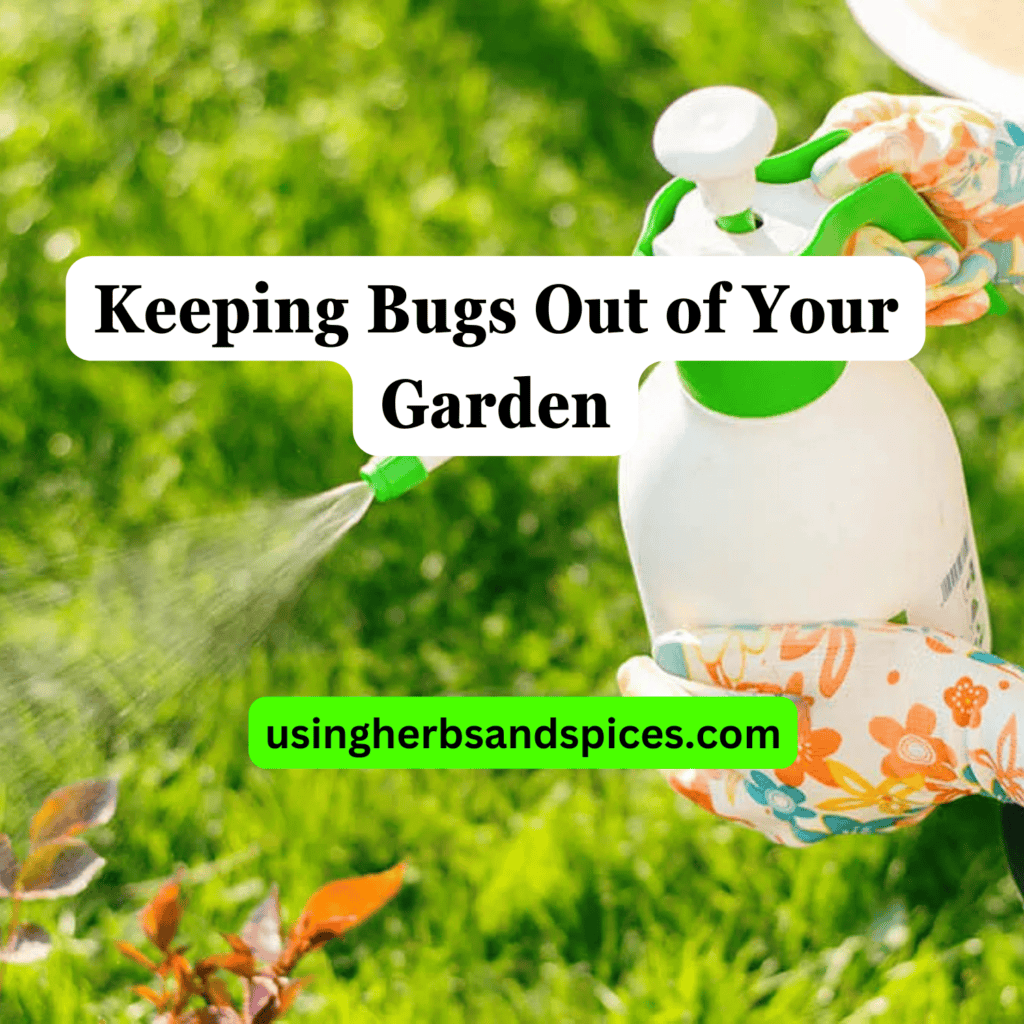After spending hours preparing and planting your garden, the last thing you want is for pests to ruin all of your hard work. Insects can quickly cause significant damage, sometimes within just a few hours. While pesticides may seem like an easy solution, there are safer, more effective ways to manage garden pests without harming beneficial insects, animals, or children.

Here are the key benefits:
- Understanding Helpful vs. Harmful Insects
Not all insects are bad for your garden. Some, such as ladybugs, spiders, and praying mantises, act as natural predators by feeding on the harmful pests that destroy plants. These helpful bugs are essential for maintaining a balanced ecosystem in your garden. Rather than aiming to eliminate all insects, focus on encouraging beneficial ones. These helpful insects act as “natural bodyguards” for your plants and are a vital part of your garden’s defense system. - Inviting Beneficial Insects
One of the most effective ways to protect your garden is by creating a welcoming environment for beneficial insects. You can do this by planting flowers and herbs that attract these helpful bugs. For example: Ladybugs are attracted to plants like dill, fennel, and yarrow, and they feed on harmful pests like aphids. Lacewings enjoy flowers like cosmos and sunflowers and also eat aphids, mites, and other small pests. Bees and butterflies can help pollinate your plants while encouraging a healthy garden ecosystem. Check with your local gardening center to find out which plants are most effective at attracting beneficial insects in your area. - Keeping Your Garden Clean
Pests often thrive in untidy, cluttered environments. Make sure to regularly weed your garden and remove any debris like fallen leaves, grass clippings, or rotting plants.
Piles of organic matter can create breeding grounds for harmful insects. Also, ensure that your plants have enough space to breathe. Overcrowding can lead to moisture buildup, which creates the perfect conditions for pests and diseases. - Using Natural Repellents
Organic gardeners often rely on natural repellents to keep harmful pests away. One popular solution is hot pepper wax, a natural spray made from spicy ingredients that deters insects from feasting on your plants. Simply spray it lightly on the leaves, and the pests will stay away. It’s safe for the plants and the produce, and it won’t affect the flavor of your vegetables, as long as you wash them thoroughly before eating.
Another effective method is using companion plants that naturally repel harmful insects. For instance:
Marigolds and borage are great for repelling pests that tend to attack tomato plants.
Basil can be planted near beans and peppers to ward off mosquitoes and flies.
Chrysanthemums contain pyrethrum, a natural insecticide that repels aphids, bedbugs, and ticks.
By strategically planting these companion plants, you can create a natural barrier that keeps pests at bay. - Companion Planting for Pest Control
Certain plant pairings work well together to keep your garden pest-free.
For example: Tomatoes and marigolds: Marigolds release a scent that repels many of the pests that attack tomatoes. Garlic and roses: Planting garlic near roses helps keep aphids away. Onions and carrots: Onions deter carrot flies, while carrots protect onions from onion flies. Research the best companion plants for your specific garden and location to maximize pest control. - Preventative Measures and Ongoing Care
Preventing pests before they become a problem is key to maintaining a healthy garden. Start by choosing pest-resistant plant varieties, and make sure your soil is well-drained and nutrient-rich. Healthy plants are more resilient and less likely to succumb to pest infestations. Regular maintenance, such as aerating the soil and ensuring plants are properly watered, will also help keep pests at bay. Stressed plants are more prone to insect attacks, so keeping your garden well-nourished is essential.
Natural Pest Control for Gardens
By using natural methods to control pests in your garden, you can protect your plants while fostering a healthy ecosystem. Encouraging beneficial insects, maintaining a clean garden, and using natural repellents will go a long way in keeping harmful pests away. With a little research and care, your garden can thrive and produce the healthy, robust plants you’ve worked so hard to cultivate.
